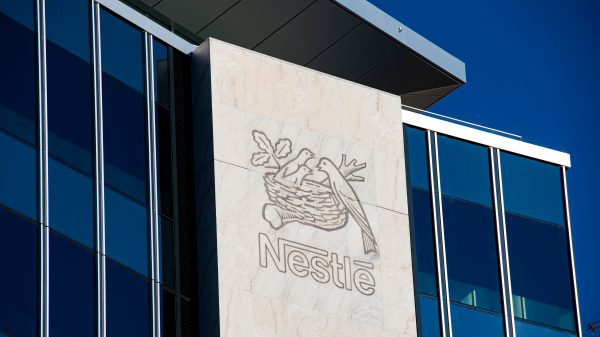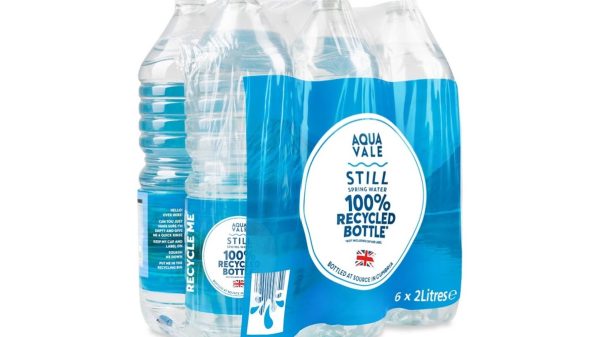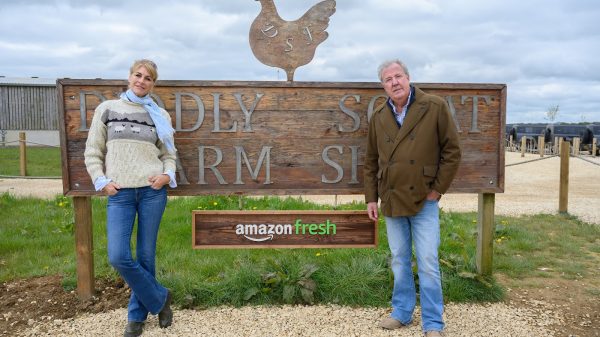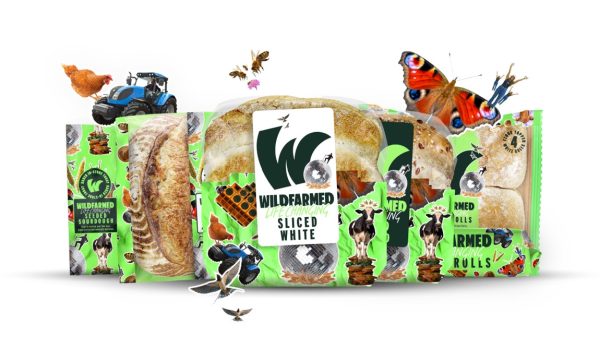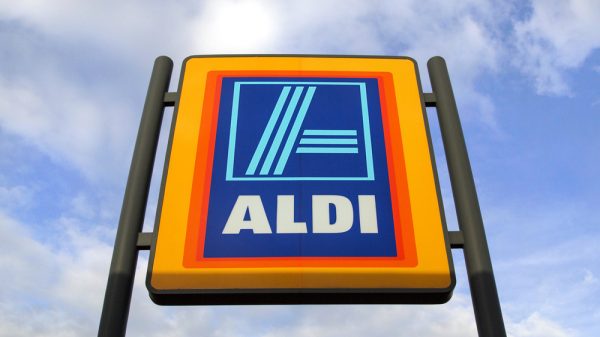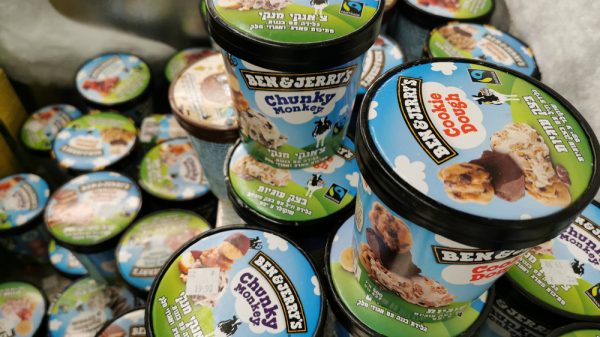HFSS, VG, GF, CBD… the list of buzzwords and acronyms lining retailers’ shelves go on – but which are here to stay?
Grocery Gazette takes a closer look at how sustainability, legislation, and trend movements have shaped the way brands are packaging, styling and producing their products.
After visiting the 2022 Food and Drink Expo in Birmingham, here are the key FMCG trends to keep an eye out for.
Refillable products
In a time of piling plastics and post-lockdown lifestyles – sustainability and convenience have been pushing innovation in retail.
One of the most popular features has been refillable products from pulse dispensers to shampoo bottles. Both retailers and brands have taken up this initiative with Asda opening four refill stores last year, and Tesco partnering with pre-fill company Loop.
Companies specialised in fitting dispensers for dry materials have grown with family-run Zero Waste Refill Hub who have worked with independent retailers such as the Co-op and Budgens.
Simultaneously, eco-conscious brands have taken it upon themselves to integrate refillable ranges along their supply chains to maximise efficiency for both retailers and the customer.
Earlier this month, Faith in Nature released a 2.5 litre refill bottle after customers explained the inconvenience of the five litre but wanted to continue supporting its eco project.
Smaller companies such as Fillrefill.co, Alter\Native and Miniml have also adopted the refill model to attract environmentally concerned consumer base.
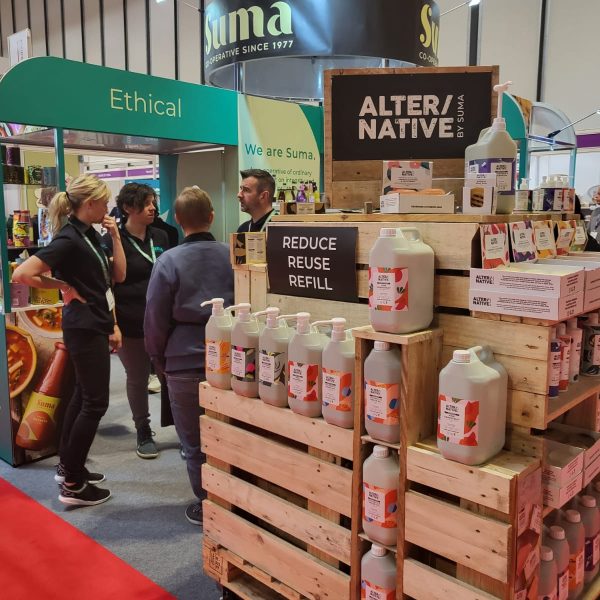
Alter/Native
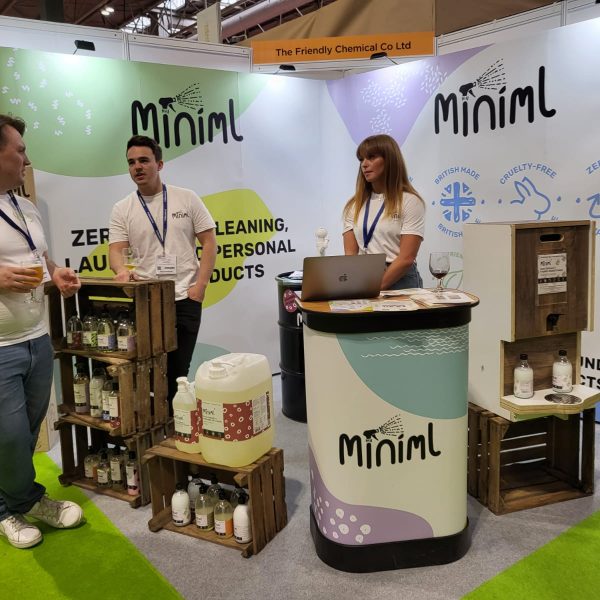
Miniml
Fillrefill.co has even simplified the process for customers by providing a list of the nearest stockists and also providing home refills straight from the factory if there isn’t a stockist nearby.
It’s clear the refillable movement has snowballed from retail spaces to brands who wish to clean up their own supply chains, and offer quick, eco and easy solutions for consumers.
READ MORE: Refill, Reuse, Recycle: How many grocers have set up refillable bays?
Vegan snacks
With eco packaging also comes eco diets – at the forefront of this has been plant-based snacks for the on-the-go consumer.
Veganism has quickly detached itself from its healthy, leafy persona and has seen several FMCG brands enter chocolate and indulgent territory.
Snack brands like Flower & White have recently released a vegan range of their meringue bars in Chocolate dipped Strawberry and Double M*ilk Chocolate due to the “clear growth of veganism in the UK”.
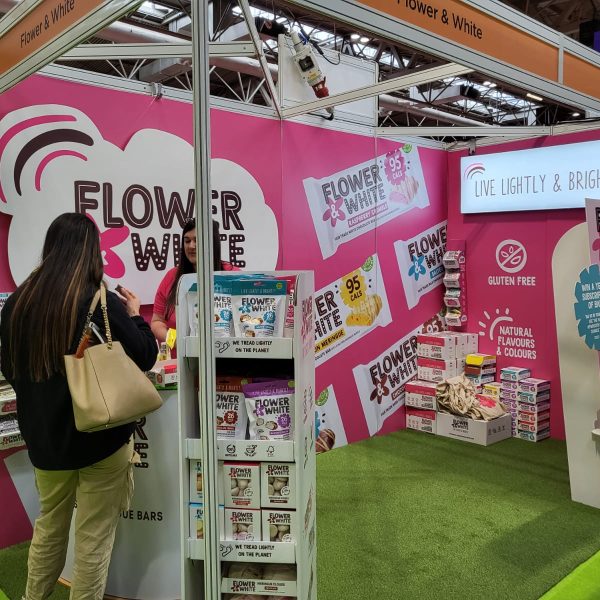
Flower & White
Last year, Vegan Food and Living reported that vegan chocolate recipes’ internet searched increased by 31% and major confectionary brands have released an increasing amount of vegan sweets.
Meanwhile, other FMCG brands have taken this opportunity to solely focus on plant-based products such as chocolate companies Nomo and LoveRaw.
Both chocolate brands only sell vegan products with Nomo focused on bars and multi share-packs whereas LoveRaw has specialised in its cream wafer styled chocolate bars.
With a third of Britons interested in trying veganism it is no doubt that plant-based chocolate brands are luring in potential customers with their cruelty-free, and eco-friendly alternatives.
HFSS compliance
Reformulation has been a hot topic as brands scramble to comply with upcoming High Fat Salt & Sugar restrictions in October.
Earlier this month, the government published HFSS clarifications indicating the policy was going full-steam ahead despite concerns of alleviating the cost-living crisis through volume price promotional offers.
While retailers have slowly trialled new store layouts or have sought loopholes to continue promoting impulsive buys – FMCG brands have taken it upon themselves to adapt recipes to pass HFSS obstacles.
KP Snacks and Weetabix have already released new HFSS complaint products ahead of the change while snack bar companies such as Tribe have come up with new products altogether for a May release.
With nuts containing higher levels of fat, snack-bar reformulation has seen the ingredient swapped out for “healthier” options such as oat-based flapjacks.
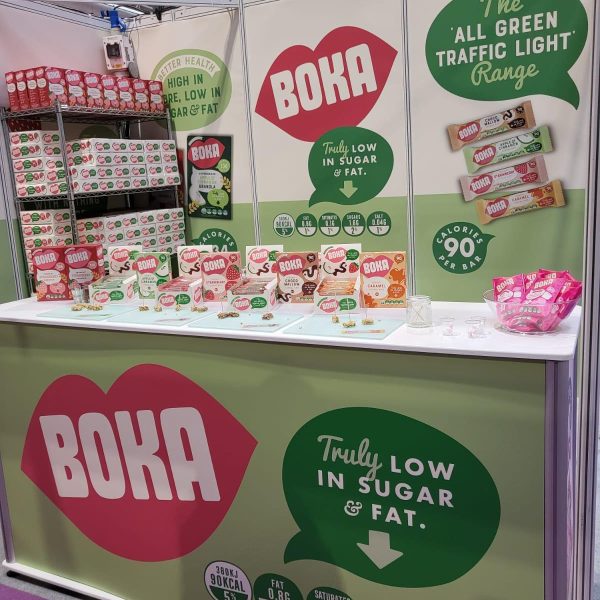
Boka
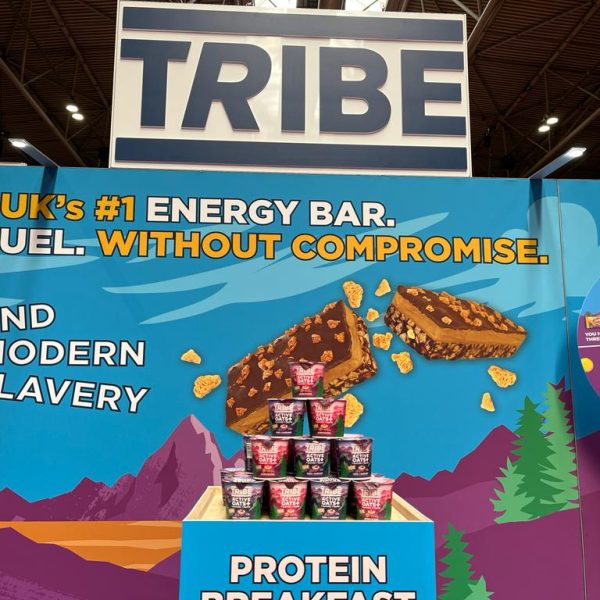
Tribe
Other companies have only released HFSS compliant bars such as Boka who pride themselves in only containing 1% in fat, saturates, sugars and salt along its cereal bar range.
As snack brands switch up their recipes, smaller HFSS compliant companies are expected to see a rise in popularity as they line tills and bay aisles come October.
READ MORE: HFSS: Which FMCG brands are reformulating bestsellers ahead of October’s law change
Tinned drinks
On the note of recipes, tinned beverages have seen creative twists with more funky flavours, alcoholic variants and CBD infused drinks hitting the market.
With tins being more portable, convenient and easily recycled – more companies have adopted the format to offer sleek and unique beverages.
Funkin Nitro Cocktail who have been around a couple years and have expanded into the Big 4 grocers are continuing to grow with new flavours launched just last week.
Canned popularity is also seen with Trip, the multi-channel CBD company with a foot in CBD oils, lifestyle wear and also tinned drinks.
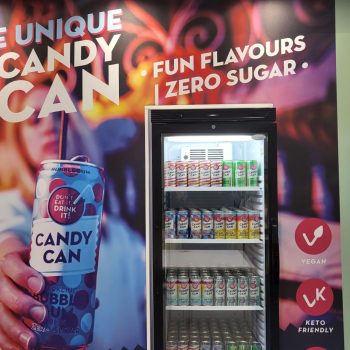
Candy Can
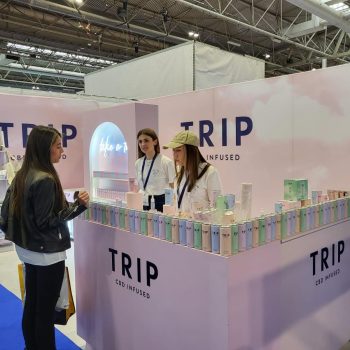
Trip
The husband-wife led company which launched in 2019 owed its origin story to the use in CBD to help co-founder Dan walk down the aisle on his wedding day following knee surgery. Originally a CBD oil brand, Trip expanded into tinned drink grounds after its initial success.
Another canned drink with a unusual twist has been Candy Can, which features unique flavours with zero sugar. Its range includes Bubblegum, Marshmallow, Cotton Candy, Birthday Cake, Sour Apple and Rocket Ice Lolly.
What’s certain about tinned drinks is the versatility and creativity the can contains for brands to explore and grow – with companies like Funkin Cocktails and Trip only launching a couple years ago.
Click here to sign up to Grocery Gazette’s free daily email newsletter


